He is a great talent, a leading musician of the Vietnamese revolutionary music . Converging all the aesthetic ideas of the era, Hoang Van's music has a profound influence, having a positive and long-lasting impact on social life and musical life. With a series of excellent red music works, promptly reflecting the important events of the nation's history and the history of the nation's soul in a turbulent period, artist-soldier Hoang Van deserves to be honored as a person who writes history through music.

Musician Hoang Van
Hoang Van's compositions are rich and diverse. Among them are many famous songs: Ho keo phao, Ha Noi-Hue-Saigon, Quang Binh my homeland, Long live Vietnam, Hello liberation army, Hello great spring victory, That soldier, Beat the drums up the mountains and forests! Love song of the Central Highlands, Song of construction, Song of the people's teacher, Song of the miner, Singing about today's rice plants, Season of blooming royal poinciana flowers, I love my school, The ring-necked bird, Seven colors of the rainbow, Road to the top of the mountain...
He is also the author of a number of choral works written with symphony orchestra such as Remembrance, Long Live Vietnam, Crossing the Mountain, Age of Ten, Singing Under the Hammer and Sickle Flag, Our City, Our Factory... He is also the author of many instrumental works: Fugue for piano, Suite for hautboy and piano, Rhapsodie for violin, bassoon solo, Elephant March, flute solo Joy of the Season, Concerto for piano and orchestra, Symphony Poem No. 1 The Bronze Citadel of the Fatherland (1960), concertino for violin and string orchestra Youth and Love (1975), Dien Bien Phu Grand Choir (2004)...
In addition, Hoang Van also wrote music for many famous films in the cinema industry such as: Noi gio, Con chim vanh khuat, Latitude 17 ngay va dem, Khoi trang, Em be ha noi, Moi tinh dau... was the composer for the ballet Chi su, the play Nila, Co gai danh trong ban...
Along with history, Hoang Van's works are divided into two periods: before and after 1975. Although each period has its own differences, they are very unified: always closely linked to each revolutionary stage, with a harmonious blend of epic and lyrical qualities.
During the 30 years of war, Hoang Van's works focused on two themes: the struggle for national unification and the building of socialism, and his music truly became a sharp weapon on the cultural and artistic front. When the country was at peace, the talented musician marked an important milestone in the history of national music with the song Quang Binh, My Homeland! - a masterpiece praising the new life of new people in the socialist North. And when the North and South were unified, he immediately had many successful works on the theme of national construction: Construction Song, Mine Worker's Song, Central Highlands Song, Singing about Today's Rice Plants... Like all musicians of his time, Hoang Van was always conscious of absorbing and promoting traditional quintessence and thoroughly using socialist realism methods. No matter the circumstances, Hoang Van's music still inspires praise and is full of revolutionary optimism: "Hello, the dawn is breaking/Hello, the great spring victory/Hello, the liberation army" (Hello, the liberation army, hello, the great spring victory); "The main road is open/Going to the future/Tomorrow is starting today/Tomorrow is starting today" (Singing about rice today). The clear lyrics direct people to a beautiful future: "The sky is high, clear, the morning dew is sparkling/The water surface is green, the leaves are swaying... Spring is coming, looking at the country's colorful renewal" (Reminiscences).

Although bearing the mark of the times, thanks to his extraordinary talent and political sensitivity, he has strived to create his own artistic style. Rising above the ordinary, Hoang Van has become the leading flag of revolutionary music, "the one carrying the soul of the times flying high" (To Huu). The most outstanding and widely spread works such as: Ho keo phao, Ha Noi Hue- Sai Gon, Quang Binh que ta oi!... are all songs that both carry the breath of the times, very heroic but also very lyrical and imbued with folk culture. Incarnated in musical works, folk elements are reborn and shine, making Hoang Van's songs not only relevant to current events, not only have the power of the times but also have the power of 4000 years of history, both heroic epics, trumpet calls to battle but also love songs praising life. That makes his music not only have great propaganda power, popular character but also have a long-lasting vitality. “The talent of Hoang Van's music is that, while listening to it, it seems like propaganda but it is actually very artistic. His songs are good because of the issues he raises, very timely, very epic but also very profound in terms of musical language research. For example, the song Two Sisters: Miss Ba Dung Si is from Tra Vinh/Sister Hai Nam Tan is from Thai Binh… is a great research on mixing modes. You must be very skillful and unique to be able to write like that." (Nguyen Cuong)
According to the law of beauty, Hoang Van's music does not stop at promptly reflecting the great changes of history, but all dry political content and epic issues are transformed into artistic messages that can easily reach the hearts of the public. For example: By using the chant extracted from folk music and the image of Uncle Ho's brave soldiers pulling cannons into battle, Hoang Van's song has shown the miraculous power and uniqueness of the people's war, thereby reviving the entire heroic atmosphere of the famous Dien Bien Phu victory that shook the world: "Ho do ta nao/let's pull cannons over the pass/Ho do ta nao/let's pull cannons over the mountain/The mountain slope is high and high/But the determination is higher than the mountain/The abyss is deep and deep/No abyss is deeper than hatred"... (Ho keo Phao). In the history of music, Ho keo phao is also a new creation and for the musician, this is also a breakthrough in his composing career. From here, (especially after he returned from studying in Beijing, China), it seems that the musician has found the key to open up resounding successes. His talent exploded and constantly shone: Almost every topic Hoang Van "touched" there was a blossoming, his works were always enthusiastically received by experts and the public. He not only has a talent for discovery but also has the ability to express the problem in a smooth, fresh and unique way.
For example, when writing about the struggle for national reunification - an important historical issue of the era, Hoang Van was very subtle in choosing to express the pain of separation through the love of brothers and sisters, in a lyrical melody that was as red as silk/Throughout thousands of years of attachment to three regions/Like branches growing up with the same root/Like brothers of the gentle mother Vietnam" (Hanoi - Hue - Saigon).
Or to describe the earth-shaking atmosphere of the spring of 1968 and the spirit of victory of the nation, he placed the image of the liberation army - the most beautiful Vietnamese man in a majestic cosmic space, a sacred artistic time (The moment of spring comes), with a rushing melody, rolling like a rising tide, a waterfall: "Looking up at Truong Son/The wind has risen/Looking across the East Sea/The waves are roaring.../Thunder is rising all over the Central Highlands/The capital is shaking". (Hello liberation army, hello spring victory)
Obviously, history has given wings to his music, making them able to carry a general meaning that has helped him become the most excellent historian of the music world in both aspects: quantity and quality. He is not only lucky to have a good song about history but also has more than half a century of persistent composition with many epic-lyrical works of peak. There is always a smooth unity between history and music, between tradition and modernity, between topicality and eternity. His music is not only: "For today/for tomorrow" (but also) "For eternity" (Song of construction).
It is known that to be successful in the field of art, one must have all the elements: talent, systematic knowledge, hard work, real life experience... But to have great works of great significance for the times, in addition to talent and cultural foundation, in addition to the artist's special intuition, one also needs political sensitivity. This superiority has helped Hoang Van to be able to promptly discover golden historical moments, thanks to which he was inspired and creative: "Only the roads know" (Song of Transport), thanks to which he historicized and immortalized events and people. Because only when placed in that precious historical artistic time, the everyday sayings "(Workshops, schools, river ports and markets / All joyfully welcome you)", even the slogans are sanctified and then naturally transformed into artistic messages, easily entering the hidden areas of the public's heart.
Not only writing well about war, his theme of building the country was also very successful. Typical are: Quang Binh, my homeland!, Feelings of land and water, Construction song, Song of the Central Highlands... Many works written about love of life by the talented musician have become the best traditional songs of the especially important sectors, the key sectors of the country in peacetime: Construction song (Construction sector), Song of the people's teacher (Education sector), Singing about rice today (Agriculture sector), I am a miner (Mining sector), Transport song (Transportation sector), Sailor's feelings (Maritime sector). In general, industry songs often lean towards propaganda and agitation, but for Hoang Van, they are genuine musical works. Not stopping at simply reflecting objective reality, he breathed life into the times, bringing in music and poetry to create vivid artistic images: "Like a bird flying back to every land/I'm on my way/Flying far away for many generations/Uncle Ho's grandchild/Proud as a cultural soldier/Growing up in the cradle of the Vietnamese homeland" (Song of the People's Teacher); "My dear friend! Do you know the joy of those who have just moved into a new house/That we have just finished building/And my dear friend! Tomorrow we will set out again/To new horizons" (Song of Construction)
The core of the problem is that he chose to approach epic issues, current issues through the lens of an artist with a sensitive heart. His artistic perspective helps him lyricize and artisticize dry historical issues, so many times the songs of this talented artist have melted the hearts of music lovers: "If anyone asks why/Our homeland has many new tiles/That there is bitterness so now there is sweetness" (Oh my homeland Quang Binh!). The Quang folk song, the simple language carrying the breath of life of the Quang people (now), the morality of drinking water and remembering its source of a humane, loyal nation and the rhetorical questions have made his songs so pure yet profound, carrying the soul of the land, worthy of being an immortal masterpiece about the beloved land of Quang Binh.
It is known that each period of history has outstanding individuals, who are entrusted by history with the responsibility of shouldering the noble "mission" of the nation and humanity. Hoang Van is such a case. With a series of masterpieces, overcoming the decay of time, he belongs to the golden generation of Vietnamese music. Perhaps partly the author is lucky to live in a time of many historical changes, but basically because he has musical talent and political sensitivity. Thanks to that, Hoang Van can reconstruct truthfully, eloquently, and subtly the historical appearance of the nation and more importantly, the historical appearance of the nation's soul with unique cultural veins.
With his important contributions to revolutionary music, Hoang Van has been awarded many prizes by the State, including the Ho Chi Minh Prize (2000). In 2012, he was awarded the title of Distinguished Capital Citizen. But perhaps, for Hoang Van, the most noble reward is the love and admiration that the music world and the people have given him - the person who wrote the history of the nation through music.
Hoang Van is a great talent, a leading musician of Vietnam's revolutionary music.
Converging all the aesthetic ideas of the era, Hoang Van's music has a profound influence, having a positive and long-lasting impact on social life and musical life. With a series of excellent red music works, promptly reflecting the important events of national history and the history of the national soul in a turbulent period, artist-soldier Hoang Van deserves to be honored as a person who writes history through music.
Tran Thi Tram/Source: hoangvan.org
Source: https://baotanglichsu.vn/vi/Articles/3098/75371/hoang-van-nguoi-viet-lich-su-bang-am-nhac.html



![[Photo] Prime Minister Pham Minh Chinh chairs the Government's online conference with localities](https://vphoto.vietnam.vn/thumb/1200x675/vietnam/resource/IMAGE/2025/10/5/264793cfb4404c63a701d235ff43e1bd)


![[Photo] Prime Minister Pham Minh Chinh launched a peak emulation campaign to achieve achievements in celebration of the 14th National Party Congress](https://vphoto.vietnam.vn/thumb/1200x675/vietnam/resource/IMAGE/2025/10/5/8869ec5cdbc740f58fbf2ae73f065076)

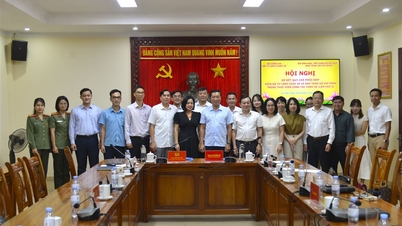
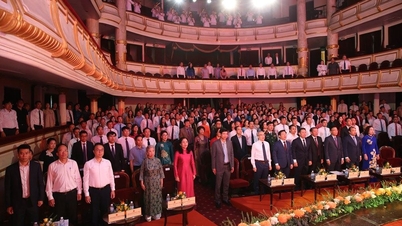



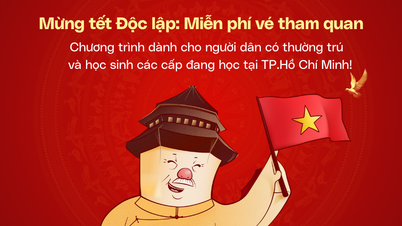




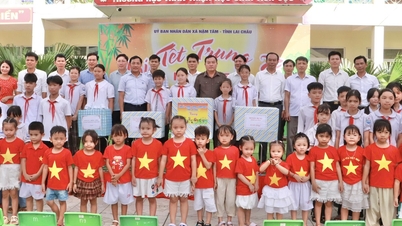
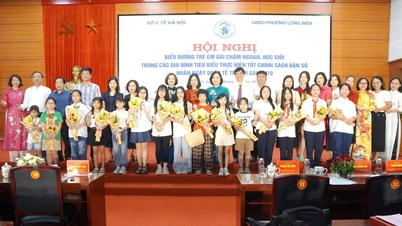
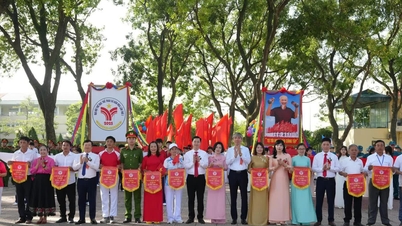

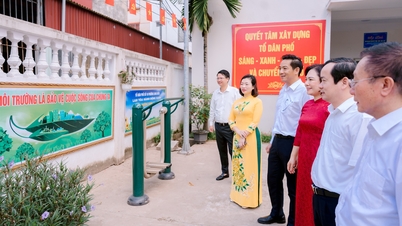
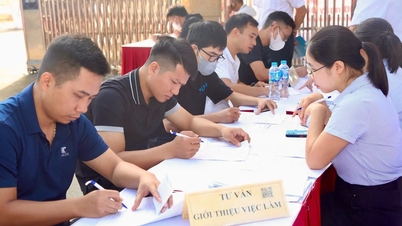


























![[VIDEO] Summary of Petrovietnam's 50th Anniversary Ceremony](https://vphoto.vietnam.vn/thumb/402x226/vietnam/resource/IMAGE/2025/10/4/abe133bdb8114793a16d4fe3e5bd0f12)

![[VIDEO] GENERAL SECRETARY TO LAM AWARDS PETROVIETNAM 8 GOLDEN WORDS: "PIONEER - EXCELLENT - SUSTAINABLE - GLOBAL"](https://vphoto.vietnam.vn/thumb/402x226/vietnam/resource/IMAGE/2025/7/23/c2fdb48863e846cfa9fb8e6ea9cf44e7)














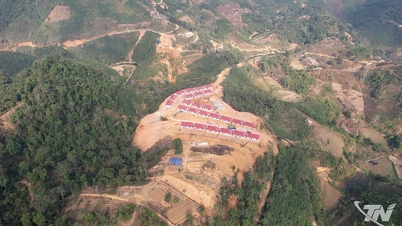



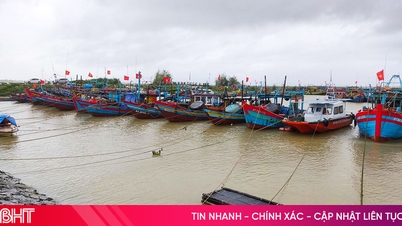

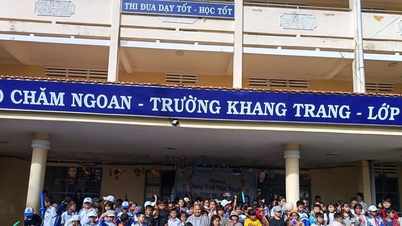

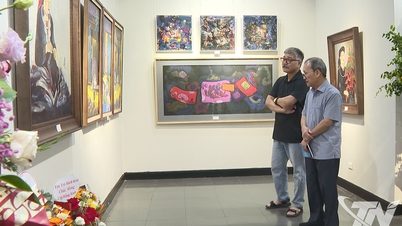
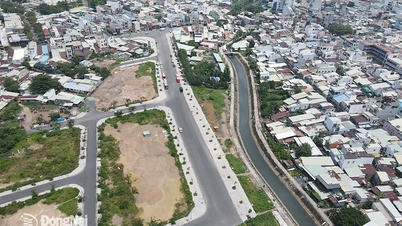













Comment (0)